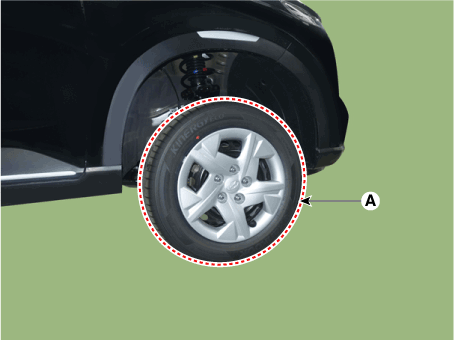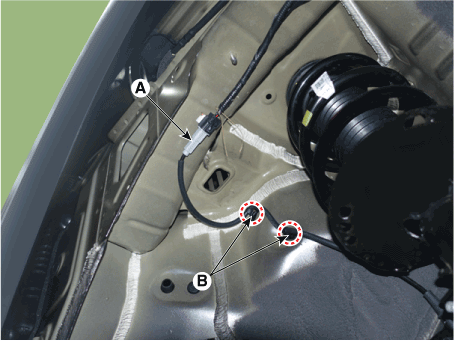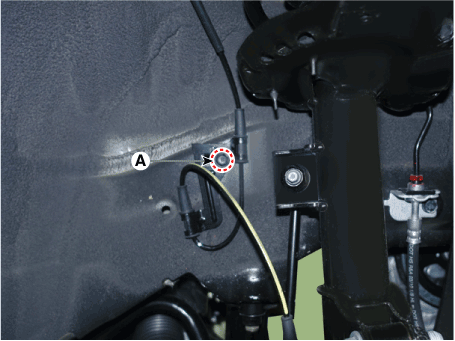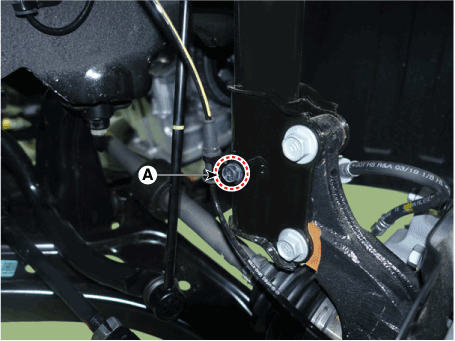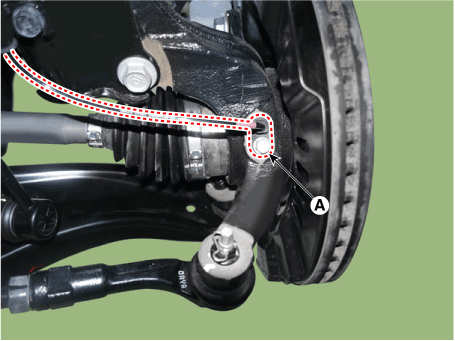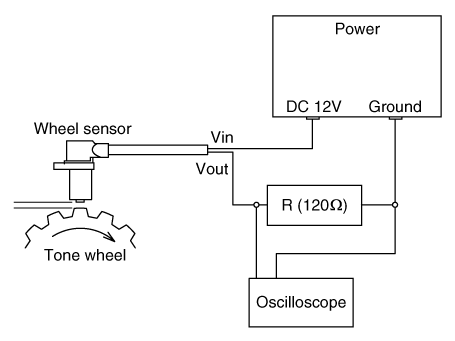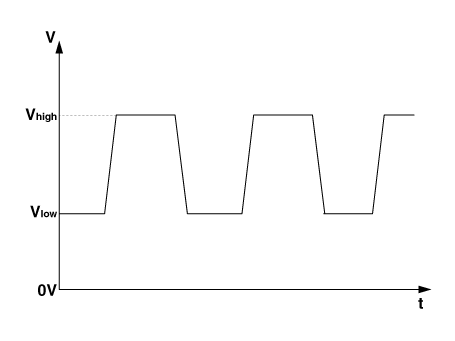Hyundai Venue: ESP(Electronic Stability Program) System / Front Wheel Speed Sensor. Repair procedures
Hyundai Venue (QX) (2020-2025) Service Manual / Brake System / ESP(Electronic Stability Program) System / Front Wheel Speed Sensor. Repair procedures
| Removal |
| 1. |
Loosen the wheel nuts slightly.
Raise the vehicle, and make sure it is securely supported.
|
| 2. |
Remove the front wheel and tire (A) from front hub.
|
| 3. |
Remove the front wheel guard.
(Refer to Body - "Front Wheel Guard")
|
| 4. |
Disconnect the front wheel speed sensor connector (A) and then remove
the fixing clip (B).
|
| 5. |
Remove the wheel speed sensor bracket bolt (A).
|
| 6. |
Remove the wheel speed sensor bracket bolt (A).
|
| 7. |
Loosen the bolt and then disconnect the front wheel speed sensor (A).
|
| Installation |
| 1. |
To install, reverse the removal procedure.
|
| Inspection |
| 1. |
Measure the output voltage between the terminal of the wheel speed sensor
and the body ground.
|
| 2. |
Compare the change of the output voltage of the wheel speed sensor to
the normal change of the output voltage as shown below.
|
Other information:
Hyundai Venue (QX) (2020-2025) Service Manual: Underdrive Brake Control Solenoid Valve (UD/B_VFS). Repair procedures
Inspection • Refer to the DTC manual for the check procedure. Removal • When the solenoid valve Diagnostic Trouble Codes (DTC) is on, perform the following procedure to replace it...
Hyundai Venue (QX) (2020-2025) Owners Manual: LCD Display Messages
Shift to P or N to start engine (for smart key system and Intelligent Variable transmission (IVT)) This warning message is displayed if you try to start the engine with the shift lever not in the P (Park) or N (Neutral) position. Information You can start the engine with the shift lever in the N (Neutral) position...
Categories
- Manuals Home
- 1st Generation Venue Owners Manual
- 1st Generation Venue Service Manual
- To set Cruise Control speed
- System Setting and Activation
- Rear Combination Light Bulb Replacement
- New on site
- Most important about car
Head Restraints
The vehicle’s front and rear seats have adjustable head restraints. The head restraints provide comfort for passengers, but more importantly they are designed to help protect passengers from whiplash and other neck and spinal injuries during an accident, especially in a rear impact collision.
WARNING
To reduce the risk of serious injury or death in an accident, take the following precautions when adjusting your head restraints:
Always properly adjust the head restraints for all passengers BEFORE starting the vehicle. NEVER let anyone ride in a seat with the head restraints removed or reversed.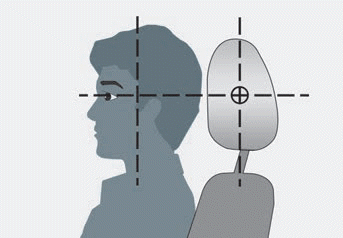
Copyright © 2025 www.hvenueqx.com


